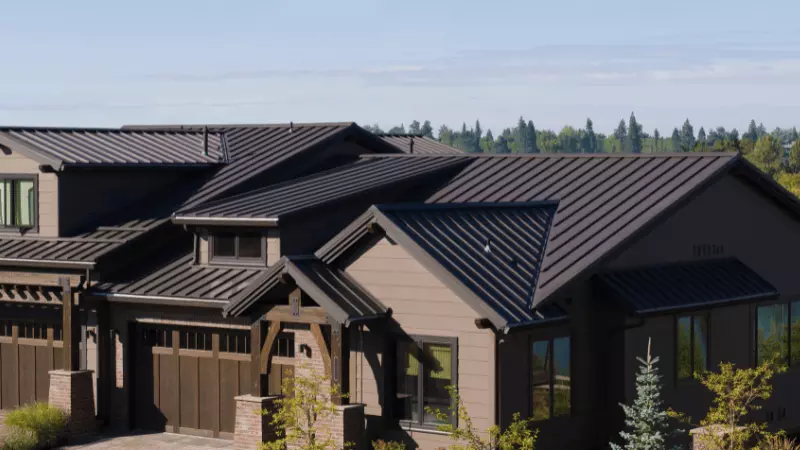Choosing the best roofing materials for Florida roofing depends on various factors, including the local climate, your budget, and your aesthetic preferences. In Florida, where the climate can be hot, humid, and prone to hurricanes and heavy rain, it's essential to select roofing materials that can withstand these conditions. Here are some of the best roofing materials for Florida.
Using a metal roof in Florida can offer several benefits.
Here are some of the advantages of installing a metal roof in Florida:
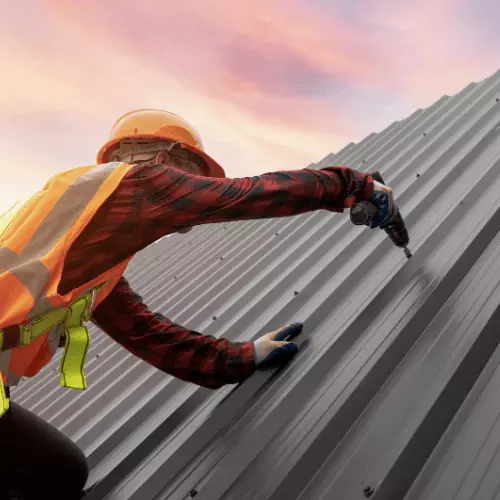
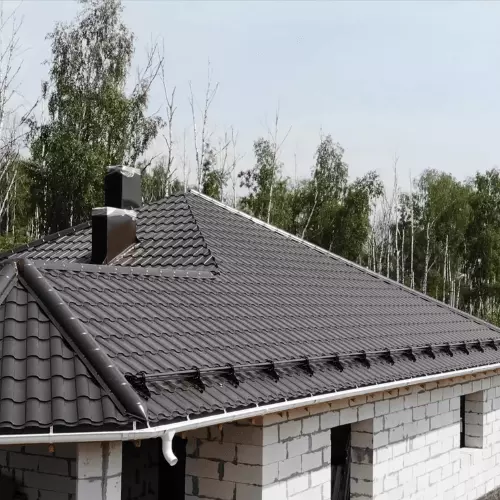
Hurricane Resistance: Florida is prone to hurricanes and strong tropical storms. Metal roofs are highly resistant to wind damage and can withstand high wind speeds, making them a durable choice for protecting your home during storms.
Longevity: Metal roofs have a longer lifespan compared to many other roofing materials. They can last 40 years or more with proper maintenance, which is particularly important in a sunny and humid climate like Florida's.
Energy Efficiency: Metal roofs reflect the sun's rays rather than absorbing them, helping to keep your home cooler. This can lead to lower energy bills as your air conditioning system won't have to work as hard to maintain a comfortable temperature.
Fire Resistance: Metal roofs are non-combustible and have a high fire resistance rating. In a state like Florida where wildfires can occur, having a fire-resistant roof can be a valuable safety feature.
Resistance to Mold and Mildew: Florida's humid climate can lead to mold and mildew growth on roofing materials. Metal roofs are resistant to mold and mildew, reducing the need for frequent cleaning and maintenance.
Low Maintenance: Metal roofs require minimal maintenance compared to other roofing materials like asphalt shingles. They are less likely to develop leaks or suffer from rot and decay.
Environmental Benefits: Metal roofing materials are often made from recycled materials, and they are also recyclable at the end of their lifespan. Additionally, their energy-efficient properties can contribute to a reduced carbon footprint.
Increase in Property Value: Installing a metal roof can increase the resale value of your home. Potential buyers often see metal roofs as an attractive and durable feature.
Aesthetic Versatility: Metal roofs come in a variety of styles and colors, allowing you to choose a look that complements your home's design. This can enhance the curb appeal of your property.
Insurance Discounts: Some insurance companies offer discounts on homeowners' insurance premiums for homes with metal roofs due to their durability and resistance to damage.
Reduced Heat Absorption: Metal roofs help to reduce heat absorption, which can be particularly beneficial in Florida's hot climate. This can contribute to a more comfortable indoor environment and reduce the strain on your cooling system.
Less Susceptible to Pests: Metal roofs are less susceptible to pests like termites and rodents, which can be a concern in Florida.
While metal roofs offer numerous benefits in Florida, it's important to consider your specific needs, budget, and aesthetic preferences before making a roofing decision. Additionally, proper installation is crucial to ensure the roof performs optimally in the Florida climate, so it's advisable to work with experienced roofing professionals.
Benefits of Concrete Tile Roofs for Homes in Florida
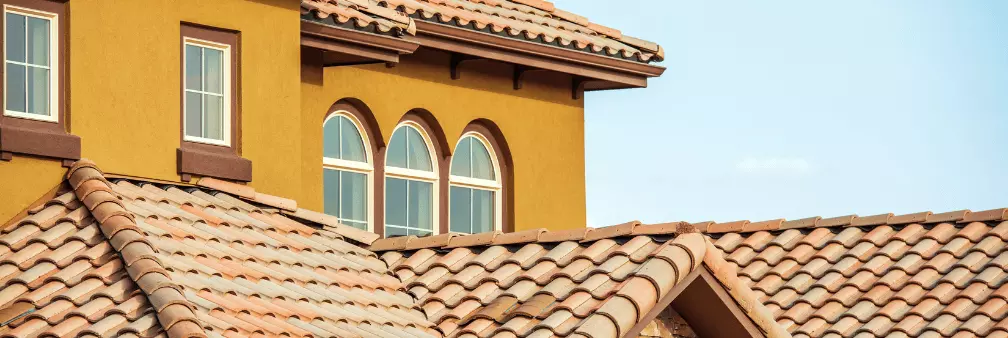
Concrete tile roofs offer numerous advantages when used in Florida's unique climate and environmental conditions. Here are some of the key benefits homeowners can enjoy when choosing concrete tile roofs for their Florida residences:

Exceptional Durability: Concrete tiles are renowned for their remarkable durability, capable of withstanding Florida's challenging weather, including heavy rain, strong winds, and hail.
Hurricane Resistance: With a high wind resistance rating, concrete tile roofs are well-suited to Florida's hurricane-prone regions, providing a secure barrier against the elements.
Fire Safety: Concrete tiles have a Class A fire rating, offering added protection against wildfires and accidental fires.
Long Lifespan: Properly maintained concrete tile roofs can last 50 years or more, making them a cost-effective long-term roofing solution.
Energy Efficiency: The natural thermal mass of concrete tiles helps regulate indoor temperatures, reducing cooling costs by keeping interiors cooler in the Florida heat.
Mold and Mildew Resistance: Resistant to mold and mildew, concrete tiles are ideal for Florida's humid climate, reducing the need for frequent cleaning and maintenance.
Aesthetic Versatility: Available in a wide range of styles, shapes, and colors, concrete tiles allow homeowners to choose roofing options that complement their architectural style and enhance curb appeal.
Low Maintenance: Concrete tile roofs are relatively low maintenance, requiring only occasional inspections and cleaning to remove debris and algae growth.
Energy Savings: The thermal mass of concrete tiles can contribute to reduced energy consumption, potentially resulting in long-term energy savings.
Insurance Discounts: Many insurance companies offer discounts on homeowners' insurance premiums for homes with concrete tile roofs due to their durability and damage resistance.
Increased Property Value: Installing a concrete tile roof can enhance the resale value of your home, as it is considered a premium roofing material.
Environmentally Friendly: Concrete tiles are often made from natural materials and can be recycled at the end of their lifespan, reducing their environmental impact.
Sound Insulation: Concrete tiles provide sound insulation, reducing external noise, which can be particularly advantageous in urban areas or neighborhoods with heavy traffic.
When considering roofing options for your Florida home, concrete tile roofs offer a plethora of benefits. However, it's essential to weigh factors such as weight and installation costs and ensure that installation is carried out by experienced professionals. Additionally, homeowners should be aware of local building codes and regulations regarding roofing materials and installation in their specific area of Florida.
Pros and Cons Asphalt tabbed roofing
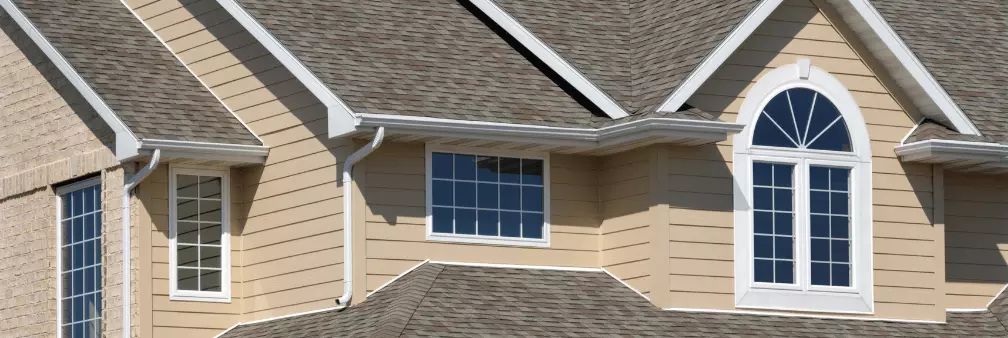 Asphalt shingle roofs are a common roofing material used in many parts of the United States, including Florida. They have their own set of advantages and disadvantages when used in Florida's climate and environmental conditions. Here are the pros and cons of asphalt shingle roofs in Florida:
Asphalt shingle roofs are a common roofing material used in many parts of the United States, including Florida. They have their own set of advantages and disadvantages when used in Florida's climate and environmental conditions. Here are the pros and cons of asphalt shingle roofs in Florida:

